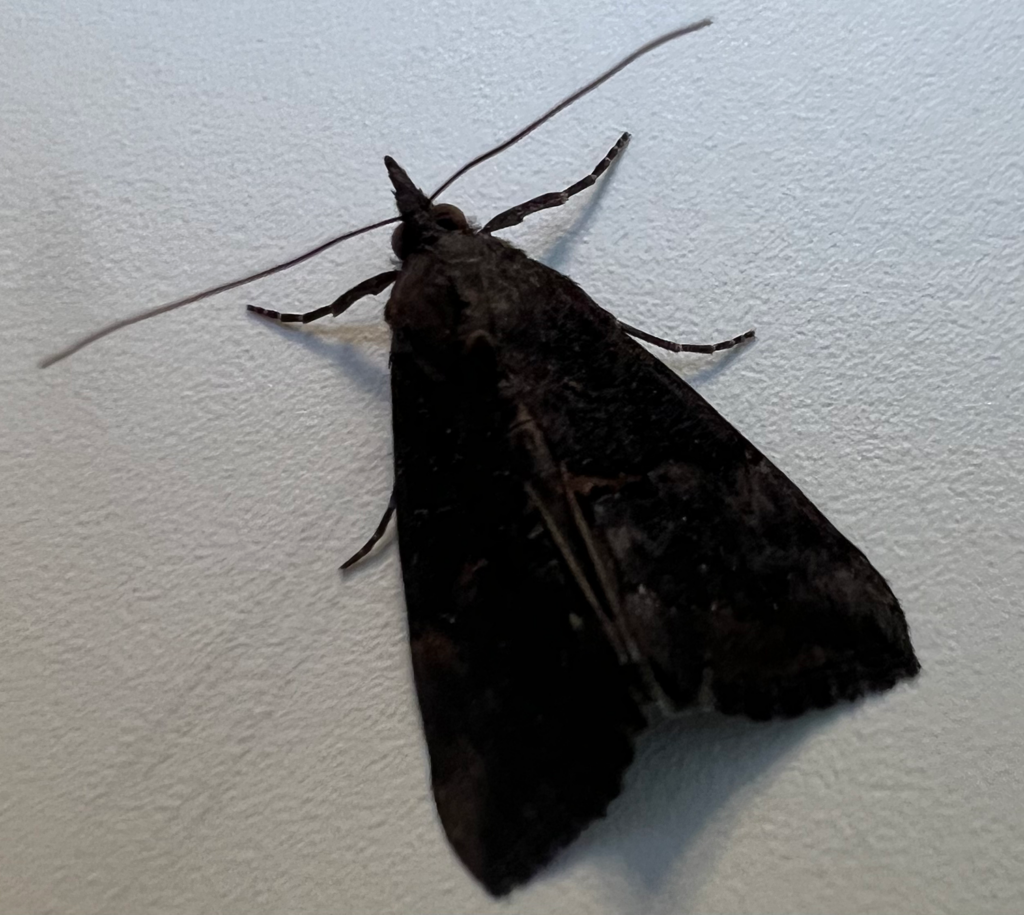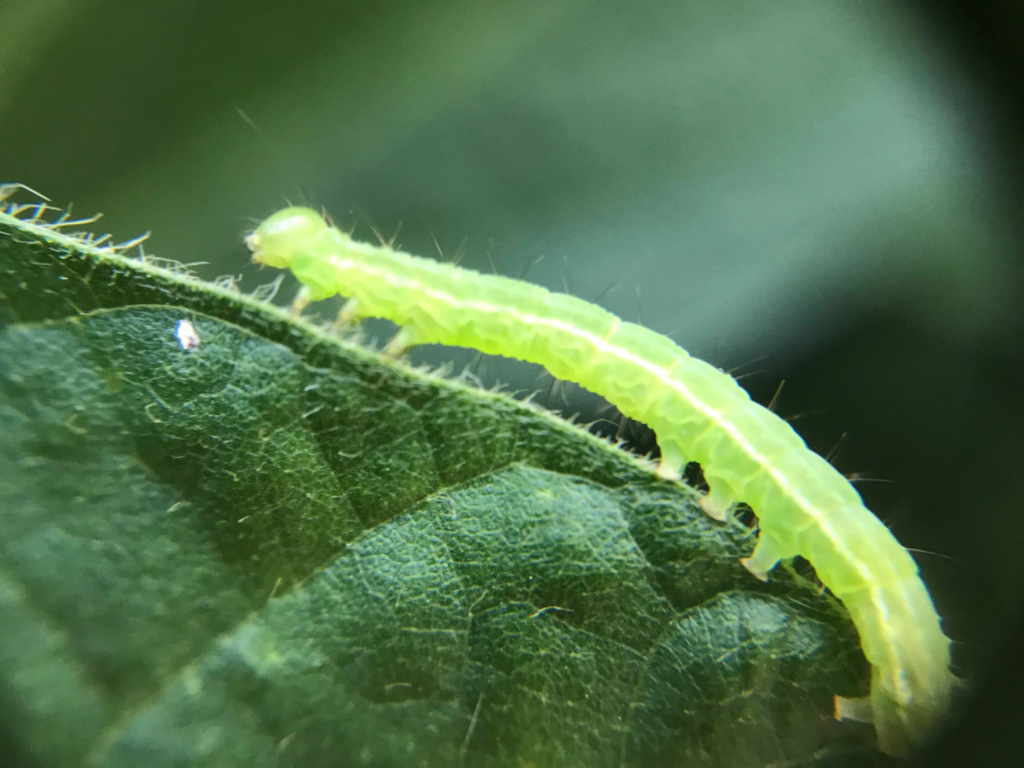This week my phone has been buzzing with questions pertaining to all these black moths that we keep seeing out in the fields as well as around homes. If they are black and have the triangle shape of a stealth fighter jet, they most likely are adult green cloverworms.
The green cloverworm caterpillars can be commonly found in soybeans and like to feed on alfalfa, clover, dry beans, cowpea, vetch, and many common weeds. In most years, fungal pathogens, insect parasites, and other predators keep the cloverworm populations at low levels, but obviously that was not the case this year.
The green cloverworm can be found in most of the United States and southeastern Canada, where soybeans are grown. Generally, the green cloverworm is not considered a serious pest. It can be confused with looper, which has three abdominal prolegs. The green cloverworm has four abdominal prolegs. Another fun fact is that if the green cloverworm is touched or disturbed, it will briefly jump, or flop, and no other soybean caterpillar does this.
No need to worry about these moths as they are harmless but they have become a nuisance. They will soon find shelter in leaves and if they survive the winter, they will emerge in the spring to lay their eggs.




 and then
and then